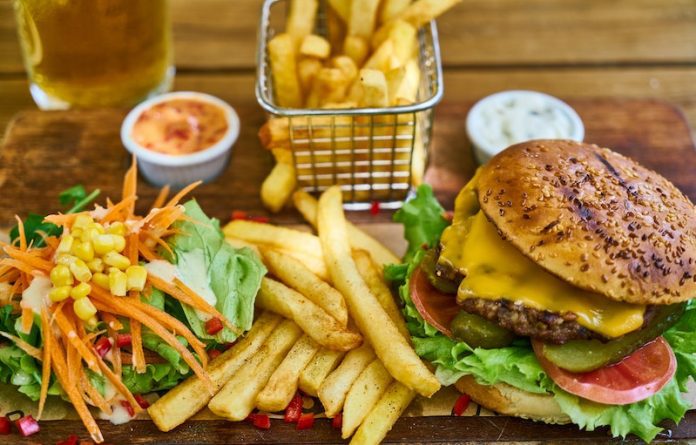
Scientists from the University of California Irvine and elsewhere found higher intake of fast food is linked to a higher risk of fatty liver disease later in life.
Visceral body fat, also known as ‘hidden’ fat, is fat stored deep inside the belly, wrapped around the organs, including the liver and intestines.
It makes up about one-tenth of all the fat stored in the body. Most fat is stored underneath the skin and is known as subcutaneous fat.
Higher levels of visceral body fat and liver fat are risk factors for obesity-related chronic diseases. Previous research has found that eating fast food may contribute to these risk factors.
In the current study, researchers aimed to examine the risks of metabolic-related fatty liver disease in middle age according to fast-food intake over the preceding 25 years.
Non-alcoholic fatty liver disease is a build-up of fats in the liver that can damage the organ and lead to serious complications. Risk factors include obesity, a high-fat diet, and type 2 diabetes.
The team analyzed data from the Coronary Artery Risk Development in Young Adults (CARDIA) study.
The participants underwent six clinical exams and measurements over 25 years for their liver fat, visceral body fat, and metabolic health.
The team also examined the average fast-food intake over the previous 25 years in these people.
They found that a higher average fast-food intake over 25 years was linked to higher levels of visceral body fat. There was a similar pattern with liver fat.
In addition, compared with people who never ate fast food, there were higher risks of having fatty liver disease at year 25 with higher average fast-food intake.
Based on the findings, the team suggests that higher fast-food intake over the preceding 25 years is linked to higher risks of fatty liver disease in middle age.
The research was published in The American Journal of Clinical Nutrition and conducted by Andrew O Odegaard et al.
If you care about nutrition, please read studies that a low-carb diet could increase overall cancer risk, and vitamin D supplements strongly reduce cancer death.
For more information about nutrition, please see recent studies that olive oil may help you live longer, and vitamin D could help lower the risk of autoimmune diseases.
Copyright © 2023 Scientific Diet. All rights reserved.





